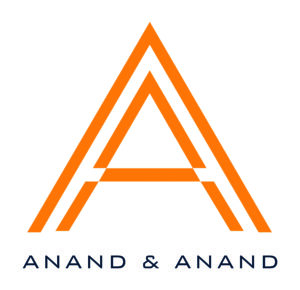Online intermediaries have always been a topic of discussion in the developing Indian digital ecosystem and, quite naturally with the advent of the Information Technology (Intermediary Guidelines and Digital Media Ethics Code) Rules, 2021, the media have caught up with the intermediaries yet again. There has been an ongoing debate on the yays and nays of the 2021 intermediary rules, primarily because India is set to begin enforcing a new set of rules that fundamentally changes the way the internet will be experienced in the country.

Senior Partner
Anand and Anand
The rules stem from the Information Technology Act 2000, or the parent act. Section 79 of the act grants safe harbour protection to the online intermediaries on the prerequisite that they fulfil certain obligations and due diligence mandated as per the rules. If these rules are breached, or the intermediaries elect to act contrary to the court or government order, they lose the safe harbour protection and are exposed to liability, along with the real originator of the violative content.
A number of judicial decisions have addressed the issue of safe harbour protection. For instance, Delhi High Court’s judgment in Christian Louboutin v Nakul Bajaj and ors was a watershed moment in intermediary liability jurisprudence in India. The court analysed the responsibilities of e-commerce platforms that actively conspire, aid or induce the commission of unlawful acts, as opposed to situations for taking advantage of the safe harbour provision.
In the cases of L’Oreal v Brandworld and anr and Skullcandy v Shri Shyam Telecom and ors (Shopclues), the high court applied the tests laid down in the Christian Louboutin case. With the rise of intermediaries, the rules were much needed to bring better clarity over the existing safe harbour provision, and will hopefully lead to the profiling of such platforms.
At the outset, the rules are divided into three parts, with the first one laying down the relevant definitions and the latter two pertaining to compliance and requisites. While part two covers social media intermediaries such as WhatsApp, Telegram, Facebook, etc., part three covers digital news media and over-the-top (OTT) platforms such as Netflix, the Quint, etc.
The regulations upon OTT platforms and digital news media are worth pondering. This part is being administered by the Ministry of Information and Broadcasting, and somewhat indicates that the rules will perhaps bring government control over digital news platforms.
This has enraged concerned parties in the domain, and has led to a handful of them knocking on the court’s door, including the Truth Pro Foundation India (TPFI), a non-profit company that runs Pratidhvani, an independent Kannada-language news portal.
The TPFI has filed a writ petition in the Karnataka High Court challenging the new intermediary rules on the ground that the rules are ultra vires (beyond the legal authority) of the parent act, imposing vague conditions for regulation, because:
- The rules purport to virtually legislate on the conduct of entities not even within the purview of the parent act;
- The rules travel beyond the specific enabling sections and introduce new concepts and regulations; and
- The rules attempt to prescribe content on the basis of vague and subjective grounds, which the Supreme Court already voided when it struck down section 66-A of the parent act in the Shreya Singhal case.
At the Kerala High Court, legal news portal LiveLaw has also challenged the rules on the grounds of imposing “arbitrary, vague, disproportionate and unreasonable” restrictions on digital news media and social media intermediaries.
The court, in its order, stayed the operation of part three of the intermediary rules and held that the state should not take coercive action for non-compliance with the rules since the petitioners are the publishers of law reports and legal literature. This is a significant victory for the publishers of judgments and legal records.
Delhi High Court has even issued a notice to the government seeking their response based upon a plea filed by leading editors challenging the recently amended intermediary rules on the grounds that part three of the rules “seeks to achieve such special regulation or control of digital media including online news platforms, and is manifestly ultra vires the parent act”.
Recently, in accordance with the regulations, a first information report was lodged against Twitter for an objectionable tweet. Some are arguing that the notified intermediary rules suffer from “unconstitutionality and undermine the free expression and privacy for millions of internet users in India”.
It seems the battle will be ongoing, since challenges to the intermediary rules are pending before several high courts, and the yes, no, maybe of the rules can only be determined once a conclusive decision is reached.
Safir Anand is senior partner and head of department (trademarks, contractual and commercial IP) at Anand and Anand

Anand and Anand
B-41, Nizamuddin East,
New Delhi 110013, India
Contact details:
Tel: +91 120 405 9300
Email: safir@anandandanand.com
www.anandandanand.com


























